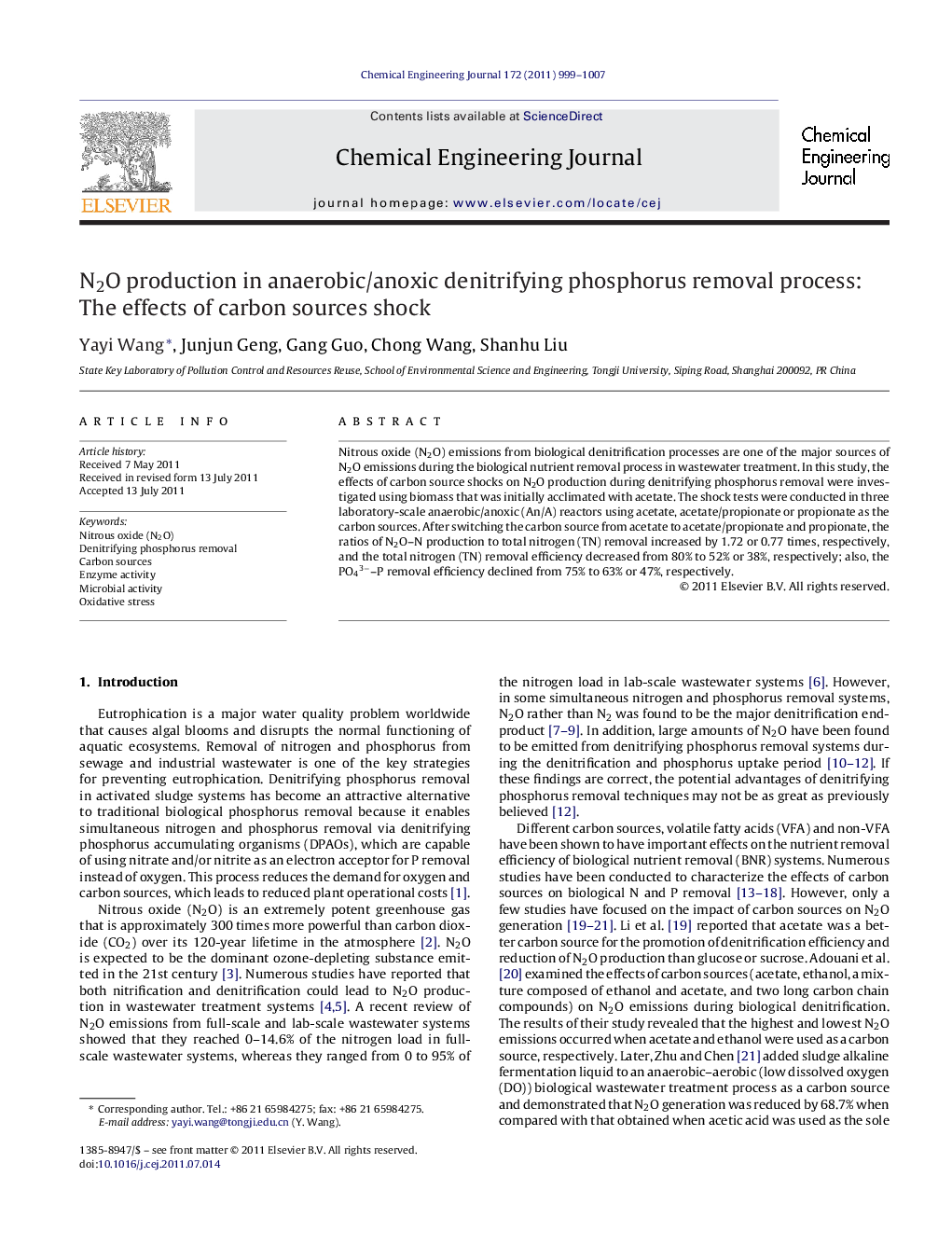| Article ID | Journal | Published Year | Pages | File Type |
|---|---|---|---|---|
| 150805 | Chemical Engineering Journal | 2011 | 9 Pages |
Nitrous oxide (N2O) emissions from biological denitrification processes are one of the major sources of N2O emissions during the biological nutrient removal process in wastewater treatment. In this study, the effects of carbon source shocks on N2O production during denitrifying phosphorus removal were investigated using biomass that was initially acclimated with acetate. The shock tests were conducted in three laboratory-scale anaerobic/anoxic (An/A) reactors using acetate, acetate/propionate or propionate as the carbon sources. After switching the carbon source from acetate to acetate/propionate and propionate, the ratios of N2O–N production to total nitrogen (TN) removal increased by 1.72 or 0.77 times, respectively, and the total nitrogen (TN) removal efficiency decreased from 80% to 52% or 38%, respectively; also, the PO43−–P removal efficiency declined from 75% to 63% or 47%, respectively.
► Effect of a shock change in carbon source on N2O emission was studied using DPAOs. ► The shock change of carbon sources stimulated N2O production in DPAOs processes. ► Shock change of carbon sources affect the activities of denitrifying enzymes. ► Shock change of carbon sources regulated the amount and composition of PHA. ► The shock change of carbon sources also caused oxidative stress.
